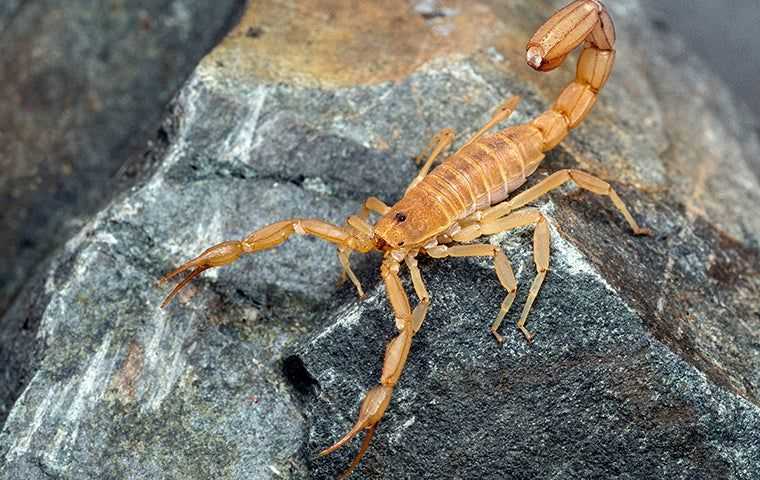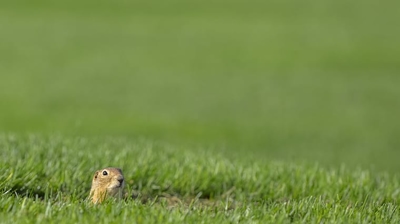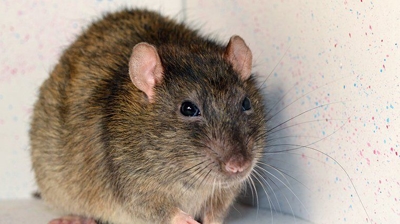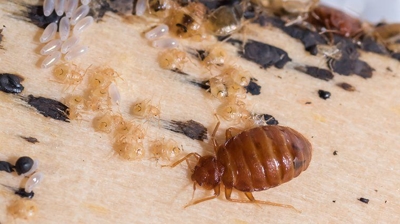
Scorpion Identification & Prevention
What You Need To Know About Scorpions
Scorpions are nocturnal pests that live mostly in dry habitats. They’re well known for their long tails that have infamous stingers at the end of them.

Frequently Asked Questions About Scorpions
Have questions? We are here to help. Still have questions or can't find the answer you need? Give us a call at 623-321-2992 today!
-
What are scorpions?
Scorpions measure between 2 ½ and 8 inches long and live anywhere from three to eight years. These nocturnal pests are only active at night and gain entry into our properties through windows, doors, cracks, crevices, and pipes.
There are over 1,200 scorpion species in the world, and the U.S. alone has 70 species. As a local Arizona property owner, it’s important to know about these dangerous invaders.
-
Where do scorpions live?
Scorpions are known as desert dwellers and are most common in arid areas like southwestern regions. When outside conditions like extreme heat and rain make them seek shelter in cool, dry, dark places, they seek harborage in our homes and businesses.
While they’re well known for dwelling in dryer habitats, they are very adaptable creatures. They can also live in habitats like forests and grasslands. However, they’re most common in desert climates.
You may often find them in the garbage, under floorboards, in piles of leaves, firewood, overturned buckets, electrical boxes, old tires, and sometimes even your shoes. That’s why it’s a good idea to shake your shoes out before putting them on!
-
Are scorpions dangerous?
Scorpions are harmful pests that threaten local home and business owners year-round. These pests have a curved tail with a stinger at the end. Scorpions use their stingers to kill prey and also as a means of defense. When it comes to scorpion activity on your property, you are in danger of getting stung.
While scorpions obviously can sting and cause pain, the good news is that most scorpions aren’t venomous. Most scorpion stings are mild, and most species are relatively harmless to humans. However, they’re still an unwelcome presence, and securing professional scorpion control services is the best choice for the quality protection you deserve.
-
What do scorpions eat?
Scorpions are carnivorous critters that feed on insects like spiders, crickets, centipedes, and cockroaches. They eat invertebrates and arachnids, including other scorpions, and they feed on small vertebrates like reptiles and rodents.
-
How do I protect my property from scorpions?
It’s very important to protect yourself and be proactive in your prevention efforts, considering all the dangers associated with a scorpion infestation. If you want to protect your property from scorpions and their painful sting, there are some efforts you can take to reduce your exposure to these pests:
Avoid walking barefoot around your home, pool, or garage.
Eliminate harborage sites around the property, like woodpiles, trash, debris, etc.
Properly seal garage doors and entry doors around the property.
Remove stones and timbers from the landscaping.
Repair any damaged window and door screens.
Routinely shake out bed sheets, clothing, shoes, etc.
Store firewood off the ground, a good distance away from the house.
Use caulk to seal cracks and holes on the outside of the structure.
While these tips can certainly help, there’s still only one guaranteed scorpion control and prevention method. The best way to effectively protect yourself and your property against scorpions is to contact pest professionals.
The team at H&N Pest Control has extensive experience detecting, eliminating, and preventing scorpion activity. We exterminate them from your property and keep these intruders away throughout the year. Call us to hear more about our scorpion control and prevention services.





